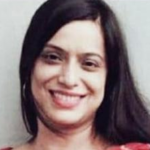‘No blueprint to life’
Agashe the actor or Agashe the psychiatrist? It’s difficult to say which persona of Dr Mohan Agashe is more endearing, but on Friday evening, the actor and the doctor in him seamlessly merged into one as the Padma Shri recipient talked about his life just before his session at the five-day National Theatre Festival at Tagore Theatre.
At 78, Agashe, with a child-like innocence, made an effort to know everyone who crossed his path. In between meeting and greeting fans, as we sat down for a heart-to-heart chat, Agashe compared his life journey to a flowing river. “Life is not a building that you start with a foundation and a blueprint. Life happens. Like a river, it flows, changes its course in face of an obstacle and goes on.” Born into a lower-middle class Maharashtrian family, luck shone on him when a teacher noticed his talent and asked his father to allow him to act in a play. “My father had to say yes to the teacher. But I was asked to focus on my studies as well. That moment I realised that I could do whatever I wanted as long as I studied well,” said Agashe.
And, he did well in studies. He took up science and eventually went to a medical school. But before that there were lessons in shorthand during holidays. “My father asked me and my sister to learn typing or shorthand to support ourselves.” Agashe, who took up medicine to please his parents, realised that he was not interested in the human body as much as he was interested in the human mind. So, he pursued psychiatry. But his love for drama continued throughout his academic life.
Seven decades on, he has enjoyed every bit of it. “People do things for material gain. Main khushi ke liye acting karta hoon,” said Agashe amid greeting his fans. He didn’t mind making small talks but requests for selfies evoked a stern response. “Taking a selfie is the easiest way to kill a person. Nowadays, people click a photo to remember someone by. What they don’t realise is that memory is to see, speak, spend time and give attention to the person in front of you. Sadly, the phone has turned everything to still photos. If I allow them to click pictures, that’s all I will be doing at public events,” he said.
Moving on from the topic of selfie-seekers, he shared his life’s most valuable lessons. “It’s important to know your strength. If one can spot what one is capable of early on and gets an opportunity to work on that,that’s great!”
Agashe encouraged the youth to find themselves. “Forget everything and focus on yourself. Find your strength and work on it.” Then, he said, think of others. “Compassion is fast disappearing from the world. Everything is centred around materialism. Make a difference by being compassionate. That’s all the world needs today!”
Agashe’s Chandigarh trip is never complete without devouring a parantha. He kept the tradition alive by visiting his friend and theatre person Umesh Kant, where he had one made by Kant’s daughter Megha.
Fresh take
On the fourth day of the festival organised by Chandigarh Sangeet Natak Akademi and Sangeet Natak Akademi, Delhi, Agashe talked about how theatre shaped his acting journey. Apart from being a psychiatrist and director of the Maharashtra Institute of Mental Health, he has been active on stage and screen. Known for his powerful performance as Nana Fadnavis in Vijay Tendulkar’s internationally acclaimed play Ghashiram Kotwal, his works include award-winning films like Sadgati, Manthan, Nishant, Antarjali Yatra and Sinhasan. He compares theatre and film to fresh and canned juice, respectively. “While in theatre it’s all raw, sensory experience, films are virtual.”









